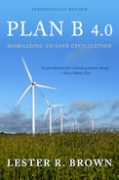/topics/climate-and-weather
Climate and Weather
Modeling of debris flows – A research report by National Institute of Hydrology
Posted on 12 Jul, 2010 05:30 PMThe report, a part of the regular work programme of the Flood Studies Division of the National Institute of Hydrology presents a literature review on modeling debris flow. Occurrence of debris flows is a common natural phenomenon and denotes the rapid flow of debris with sufficient water to disperse grains uniformly throughout the entire depth. Dam break flows, landslides and flows in a mountainous terrain are some of the examples.
Applications of Artificial Neural Networks in flood studies of Ajay river basin in Jharkhand - A research report by National Institute of Hydrology
Posted on 12 Jul, 2010 08:29 AMThe study evaluates the applicability of Artificial Neural Networks (ANN) in rainfall-runoff process modeling for the Ajay river basin, Jharkhand to predict the 6-hour ahead runoff at Sarath. Initially three flood events were considered for training, to find out the weights between different layers of the network. The back propagation algorithm has been used for optimization of weights. The developed ANN was validated for rest of the flood events.
Expert systems for unit hydrograph analysis - A research report by National Institute of Hydrology
Posted on 11 Jul, 2010 10:14 PMThe report deals with expert systems for unit hydrograph analysis, an emerging technology, which may in years to come, revolutionize professional activities in the field of surface water analysis and modeling. The literature review on the topic revealed the potential of application of expert system for unit hydrograph analysis. A prototype expert system has been developed for the selection of the most appropriate model for unit hydrograph derivation of a given catchment.
Providing a plan to save civilization - Books from the Earth Policy Institute
Posted on 11 Jul, 2010 05:24 AM Earth Policy Institute, is a non-profit environmental research organization dedicated to providing a vision of an eco-economy and a roadmap on how to get there. The Institute was founded in 2001 with the following goals:
Earth Policy Institute, is a non-profit environmental research organization dedicated to providing a vision of an eco-economy and a roadmap on how to get there. The Institute was founded in 2001 with the following goals:
- to provide a global plan (Plan B) for moving the world onto an environmentally and economically sustainable path
- to provide examples demonstrating how the plan would work, and
- to keep the media, policymakers, academics, environmentalists, and other decision-makers focused on the process of building a Plan B economy.
The basic research of the Institute has been published in the form of seven books:
Development of relationship between glacier melt runoff and meteorological parameters – A research report by National Institute of Hydrology
Posted on 10 Jul, 2010 04:35 PMThe study attempts to develop a relationship between glacier melt runoff and meteorological parameters for the Dokriani glacier in Garhwal Himalayas. The discharge auto-correlation, correlation between discharge & temperature and between discharge & rainfall has been computed for each month of the summer season and for the melt season as a whole for different years.
Reservoir sedimentation study for Ukai dam using satellite data - A research report by National Institute of Hydrology
Posted on 10 Jul, 2010 11:39 AMThe report presents a sedimentation study in which sedimentation rate and volume have been determined using remote sensing data in the Ukai reservoir constructed across the Tapti River in Gujarat.
Software for a hydrological data year book – A report by National Institute of Hydrology
Posted on 10 Jul, 2010 10:39 AMThe report deals with software developed by the National Institute of Hydrology with the purpose of preparation of hydrological data book in a form most valuable to the users. A menu driven, user friendly software has been developed to handle all types of hydrological and meteorological data.
Draft regulatory framework for wetlands conservation - Comments by ATREE
Posted on 09 Jul, 2010 11:49 PMThe Ministry of Environment and Forests released a draft of the regulatory framework for wetland conservation - Wetlands Conservation and Management Rules (2009) for feedback from all stakeholders. The draft framework was prepared by a multi-disciplinary expert group, and final round of comments were invited till June 21st 2010.
The Wetland Conservation Team of Ashoka Trust for Research in Ecology and the Environment (ATREE) did a detailed analysis of the draft regulation and submitted several pertinent concerns to the Ministry. The most significant observation is that the new framework (as do much of India's policies and laws) continues to propose unjustifiable State control and interventions over the country's wetlands and livelihoods of people dependent on them. The regulation does not make any constructive suggestions or recommendations for the conservation that the country's wetlands demand, and instead brings all wetlands into complete official control by installing Central, State and District-level wetland regulatory authorities, wherein the majority of the members will be senior government officials.
Still reporting rainfall in inches and dam gauges in feet
Posted on 09 Jul, 2010 12:18 PMWe have adopted the metric system long back (1957) and there was a grace period of 10 years for transition from British units to metric units.
Systematic procedure for the computation of evaporation from lakes - A research report by National Institute of Hydrology
Posted on 08 Jul, 2010 10:49 PMThe report presents a systematic procedure for the computation of evaporation from lakes. Water balance of a lake depends upon the relative importance of various inputs and outputs to and from the lake. In Indian conditions, evaporation loss constitutes one of the major outputs from a lake and as such, the water regime of a lake and yield are influenced by it. In order to conserve and use the water, there is an urgent need for a first hand reasonable accurate estimate of its water balance.





